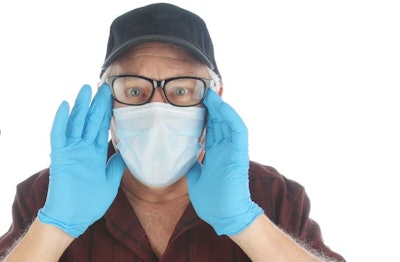
Meat and poultry plant managers would be wise to be leaders in their communities when it comes to COVID-19 response and prevention.
Speaking during the Kansas Ag Growth Summit on August 18, Dr. Lee Norman, secretary of the Kansas Department of Health and Environment, said plant managers should look to how they can keep COVID-19 away from not only the facilities they operate, but also the communities in which they operate.
“I think one of the things as businesses and business leaders that can be very powerful is if you can work with county commissioners, mayors, and the like and say: ‘Let’s not fight. Let’s work together about this,’” Norman advised.
In doing so, you can help push down the number of positive cases in the community, and your businesses are likely to benefit.
“Your businesses are not safe islands. They are in communities that are in regions that have disease,” said Norman.
To prove his point, Norman noted that there are nursing homes and correctional facilities in the state that have become COVID-19 clusters. The residents of those facilities do not leave the premises, so the disease entered the facilities through employees and/or people who do business with them that have been out in the community.
Leadership from Cargill
Also participating in the summit was Jarrod Gillig, president of business operations and supply chain for Cargill Protein – North America.
One summit participant said that in Dodge City, where Cargill operates a beef plant, it was noticeable that more residents were wearing masks than they were in other Kansas communities. When asked about Dodge City, Gillig said he hoped the higher percentage of people wearing masks had something to do with the examples set by Cargill Dodge City plant manager Jamin Phipps and the facility’s employees.
“It starts from the top. We have to make sure that the management team understands and is focused on the importance of that. If they see us wearing the mask haphazardly, or protecting our chin more than our mouth or nose, that right there is a signal that we don’t value it, so we are extremely diligent,” said Gillig.
Cargill Protein workers are expected to put their masks on before they enter the plant, but workers have proven to go above and beyond what is expected of them, he said.
“You can actually stand in our parking lots and watch people wear their masks all the way to their car. They won’t even take it off when they pass through the gate,” he said. “You can take pride in that.”
The Kansas Ag Growth Summit was hosted by the Kansas Department of Agriculture.
View our continuing coverage of the coronavirus/COVID-19 pandemic.

















